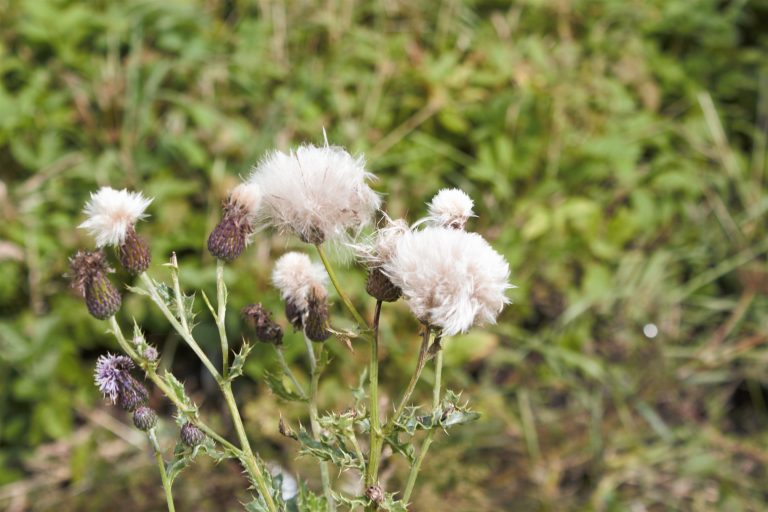The Black Bull of Norroway

‘Seven long years I served for thee,
The glassy hill I clomb for thee,
Thy bloody clothes I wrang for thee;
And wilt thou not waken and turn to me?’

By Rosie Young
Once, a long time ago in Norroway, there lived three sisters. The day came when the eldest said to their mother, “Mother, bake me a bannock and roast me a collop, for I am off to seek my fortune.” Her mother did so, and the eldest daughter set off for the cottage of an old witch who bade her look out the back door of the cottage. Two days passed with naught to see, but on the third day along came a coach-and-six. “Yon’s for you.” Said the old witch, and so the eldest daughter was swept away into the coach.
Next the middle daughter ventured to the witch’s cottage with a bannock and a collop. She received the same advice, and on the third day saw a coach-and-four, which she swiftly left with.
Finally it was the youngest daughter’s turn to do as her sisters had before her, but on her third day at the witches cottage she was aggrieved to see a monstrous black bull coming along the road. Weeping and trembling with fear, she was lifted onto the bull’s back, and the two set off.
They travelled for a long, long time, and the girl began to hunger, till she was nearly faint with it. “Take food from my left ear,” said the bull, “and drink from my right.” Bewildered, the girl did as he bade her, and found herself magically refreshed. They rode and rode, the girl eating and drinking as she pleased, until they reached a great and beautiful castle.
“This is the home of my eldest brother,” said the bull, “we will stay here tonight.”
They received the girl graciously at the castle, lifting her down from the bull’s back and housing him in the stable. When morning came, they took her to the parlour and presented her with the most beautiful apple she had ever seen. “Do not break it,” she was told, “until you are in the greatest strait of your mortal life.”
Then the girl was lifted back onto the bulls back and the two set off once more. The second night the bull took them to the home of his next brother, a castle even grander than the first. They were welcomed once again, and the next morning the girl was presented with the finest pear she had ever seen, and told her not to break it until she was in the greatest strait of her life, before being placed onto the bull’s back once more and sent onward.
Next they came to the home of the bull’s youngest brother, and it was the greatest by far. Yet again they were welcomed, and yet again the girl was presented with a gift: the bonniest plum she had ever seen. Once again she was told not to break it unless in the greatest straits of her mortal life. Then she was placed back on the bull’s back and they journeyed on.
For a long time they rode and rode, until they came to a barren and brooding glen. The girl slid off the bull’s back and sat down on a stone. “Here you must say while I go to fight the Old One,” said the bull, “move not a hand nor a foot, or I will not be able to find you come morning. If the sky turns blue, you will know I have bested the Old One, but if the sky turns red, you will know he has conquered me.”
So the girl sat, moving not even her eyes, until all about her turned blue. Overjoyed by the bull’s triumph, she shifted where she sat. So when bull returned to look for her he could not find her.
She sat and waited for him a long, long time, weeping for she knew he could not come. At long last she got to her feet and chose a direction to walk in. She walked and walked until she came to a hill of glass. Try as she might, she could not climb it for its slopes were sheer and slippery. She walked all about the bottom of the hill in hopes she might find a passage over. She came instead to a smith’s house. “If you serve me seven years,” said the smith, “I will make you a pair of iron shoes so as you can climb the hill.”
And so she did. At the end of the seven years the smith did as promised and presented her with a pair of iron shoes which soon saw her over the hill. On the other side she came to the cottage of an old washerwoman, and who should be staying with her but a gallant young knight. Though he was now in human form, the girl knew him at once to be her bull, though he seemed not to know her.
The washer woman told her that the knight had given them his bloody clothes and promised to marry whoever could get the stain out. The washerwoman and her daughter had laboured for hours, to no avail. But, as soon as the girl, now a young woman, put her hands in the water, the stains melted away. When asked who had brought out the stain, the washerwoman told the knight that it was her daughter.
So the knight and the washerwoman’s daughter were to be married, and the young woman was beside herself with grief. Remembering her apple, she brought it out and broke it. It had been filled with gold and jewels, the richest she had ever seen. When the washerwoman’s daughter saw these she wanted them, and the young woman made a bargain with her. “I will give you all these jewels, if you will but put your marriage off for one day, and let me go alone to his room at night.”
The washerwoman’s daughter agreed, but her mother was cunning, and gave the knight a sleeping draft. He stirred not while the young woman sat in his room and sobbed and sang.
The next day she knew not what else to do, so she broke the pear. Inside was jewellery far richer than that of the apple. The washerwoman’s daughter’s greed was not sated, and so the young woman bargained for a second night. But once again, the washerwoman had given him a sleeping draft and as the young woman sang, he slept on.
Now the young woman was nearly lost to despair. But on that third day, while the knight was out hunting, one of his companions asked what was the cause of all the singing and sobbing coming from his bedchamber. The knight was baffled, and resolved to stay awake that night.
Fearing this may be her last chance, the young woman broke the plum and beheld the richest jewellery of all. With this she bartered for a third night.
When the washerwoman brought the knight his sleeping draft, he sent her away for some honey to sweeten it, then while she was gone poured it out. That night, when they had all gone to bed again, the young woman sang:
‘Seven long years I served for thee,
The glassy hill I clomb for thee,
Thy bloody clothes I wrang for thee;
And wilt thou not waken and turn to me?’
Upon hearing her voice he at once remembered her, and turned to her. They shared stories of all that had befallen them these past seven years, and quickly agreed to marry. The washerwoman and her daughter were burnt and the young woman and the knight lived happily thereafter.



